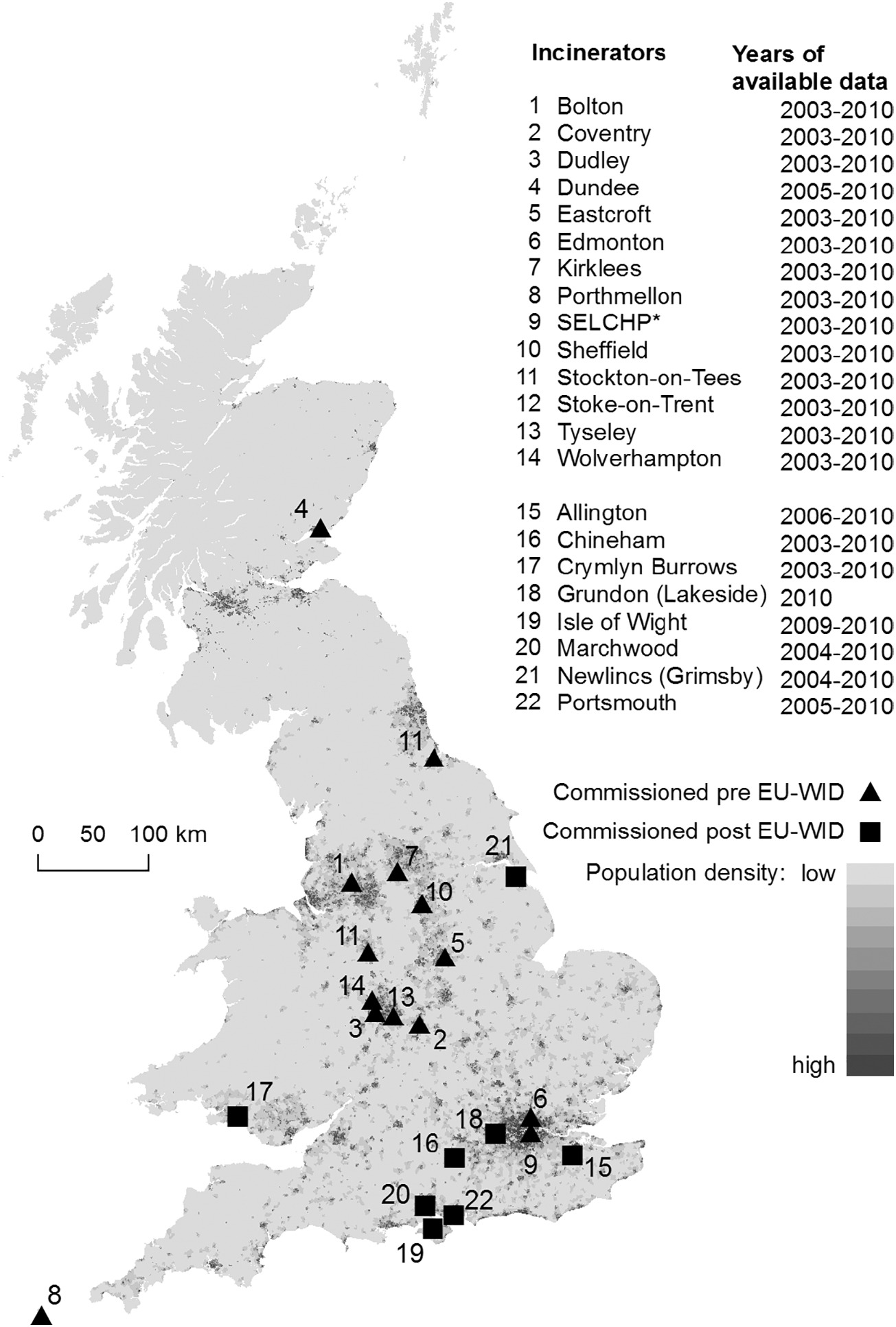Long-running work to assess the health impact of emissions from municipal waste incinerators has suggested that there is no increased risk of stillbirth, infant mortality or ‘other birth outcomes’ to those living near the facilities.
The conclusions came in a study published last week (22 November), which was funded by Public Health England and carried out by researchers at the Small Area Health Statistics Unit and King’s College, London. The work is believed to be the largest of its kind to date and is based on incinerators over the period 2003-2010.

Municipal waste incineration: report finds no link to infant mortality
It is part of a wider series of studies to investigate the health risk of those living close to municipal waste incinerators – now usually known as energy from waste plants – in the UK, with further findings to be published in coming months. The latest round of research was started by the government through the Health Protection Agency in January 2012 (see letsrecycle.com story) – the HPA became part of Public Health England in 2013.
In 2009 (see letsrecycle.com story) the HPA had found incinerators posed “no significant public health” but with a background of some concerns, especially from lobby groups, work was extended to look at the topic in more detail.
A study completed last year (2017), concluded that municipal waste incinerators emit a ‘low level’ of air pollutants (see letsrecycle.com story).
PM10
Conclusions were based upon modelling of emissions of particulate matter (PM10) – as a proxy for air pollutants more generally – from 22 facilities at locations in England, Scotland and Wales.
The latest component of the study saw researchers assess data relating to birth and infant mortality data in surrounding areas of the same 22 facilities.
Researchers looked at figures recorded between 2003 and 2010 on birthweight, stillbirth, neonatal, post-neonatal and infant mortality as well as other datasets for within 10 km of each of the selected plants. Data relating to over 1,025,000 births and 18,694 infant deaths was included in the study.

The incinerators covered in the study (source: ScienceDirect report)
According to the researchers, the results of the study show ‘no evidence’ for increased risk of any of the studied birth outcomes in relation to either waste incinerator emissions or living near a facility operating to the current EU emissions regulations.
Regulations
In a version of the study published online last week, researchers wrote: “This large national study found no evidence for increased risk of a range of birth outcomes, including birth weight, preterm delivery and infant mortality, in relation to either MWI [municipal waste incinerator] emissions or living near an MWI operating to the current EU waste incinerator regulations in Great Britain. The study should be generalisable to other MWIs operating to similar regulations and with similar waste streams.”
A study into the effects of emissions from energy-from-waste (EfW) plants on human health was first announced in 2012 funded by a grant from the Health Protection Agency and the Scottish Government – with findings initially expected in March 2014.
However, publication of the findings of the research were subsequently hit by a number of delays, in part caused by “unanticipated complexity in gathering data”.
Related links
The latest report can be viewed HERE.
The post Municipal incinerator emissions ‘not linked’ to infant mortality appeared first on letsrecycle.com.
Source: letsrecycle.com Waste Managment


